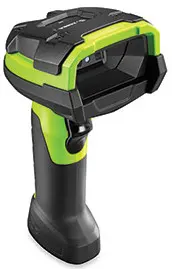- Home
- Barcode Bonanza News & Information
- Maintaining Your Zebra Barcode Printer

Selecting the right barcode scanner is crucial for enhancing efficiency, accuracy, and productivity in your business operations. With a plethora of options available in the market, making an informed choice that aligns with your industry requirements and specific business needs can seem daunting. Let's try to simplify the process, ensuring you choose the most appropriate barcode scanner to meet your unique challenges.
Consider Your Specific Scanning Needs
Environment and Usage
Consider the environment in which the scanner will be used. High-volume retail settings, rugged warehouses, outdoor environments, or healthcare facilities each have distinct requirements. Determine if you need scanners that can withstand drops, dust, moisture, or require disinfection.
Type of Barcodes:
Identify the types of barcodes your business uses. Whether you're scanning traditional 1D barcodes, complex 2D barcodes, or both, will significantly influence your choice. Some scanners are optimized for quick reading of standard barcodes, while others are equipped to handle a variety of formats including QR codes.
Connectivity Needs
Decide between wired and wireless options. Wired scanners are reliable and straightforward but limit mobility. Wireless scanners offer flexibility and range, which is beneficial in large retail spaces or warehouses. Consider Bluetooth or Wi-Fi connectivity based on your operational range and infrastructure.
Scanning Volume
Assess the volume of scanning your business performs. High-volume environments may require scanners with faster reading capabilities and durability to handle the workload. For businesses with sporadic or low-volume scanning, a basic handheld scanner might suffice.
Evaluate Barcode Scanner Types
Handheld Barcode Scanners
Versatile and user-friendly, handheld scanners are ideal for retail and inventory management. They can be wired or wireless, with varying levels of ruggedness for different environments.
Mobile Computers
These devices combine a scanner with a full-fledged computer, offering on-the-go access to your database. They're perfect for real-time inventory management and are especially useful in logistics and warehouse settings.
Fixed Mount Scanners
Best suited for industrial environments where items pass through a stationary point, like conveyor belts. These scanners can handle high volumes and speed, ideal for manufacturing and large-scale logistics operations.
Wearable Barcode Scanners
For hands-free operations, wearable scanners offer exceptional mobility and efficiency. They're particularly effective in picking and packing processes in warehouses.
Barcode Scanner Performance
Scan Range
The distance from which a scanner can accurately read a barcode is crucial. Depending on your setup, you may need devices that can scan from close proximity or require extended range capabilities.
Speed and Accuracy
High-speed scanning with minimal errors is vital for maintaining operational efficiency. Look for scanners with good decode rates that can handle your business's pace.
Scanner Durability
For environments prone to drops, spills, or dust, choosing a scanner built to withstand such conditions is essential. Check the device's IP rating for an indication of its ruggedness.
Additional Features and Compatibility
Battery Life
For wireless scanners, battery life is a key consideration. Ensure the battery can last through an entire shift to avoid disruptions.
Software Compatibility
Verify that the scanner is compatible with your existing software systems. Seamless integration is critical for efficient data processing and management.
Ergonomics
Comfortable use throughout the day is important. Look for ergonomic designs that can reduce user fatigue, especially in high-volume scanning environments.Choosing the best barcode scanner for your business involves a careful consideration of your operational environment, the types of barcodes you use, connectivity preferences, scanning volume, and specific features that can enhance productivity. By understanding your needs and evaluating the options against these criteria, you can select a scanner that not only meets but exceeds your expectations, and improves efficiency and accuracy across your operations.
Get Help Choosing The Right Scanner
Take the time to thoroughly assess your business needs and research the options available. Consult with us. we can offer insights and insider details about different scanners. Investing in the right barcode scanning solution is a strategic move that can significantly impact your operational success. Contact us today with your questions!
or Comments?
